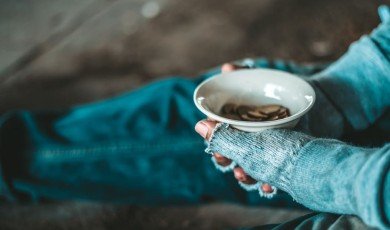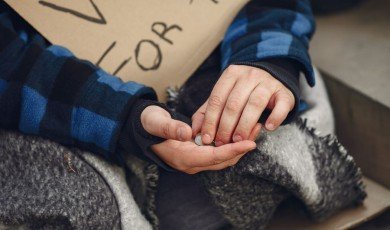
In a world deeply divided by wealth, geography, and language, there is an urgent need for accurate data and clear communication to create positive change. For policymakers, researchers, and community leaders striving to address poverty and health disparities, reliable, up-to-date statistics are crucial. Yet, as important as data is, it alone cannot heal. Turning insight into action demands that critical information—from health care protocols to disease prevention guidelines—reaches everyone, regardless of their language or literacy. This is where the power of health care translation becomes an unsung hero in the battle to end poverty and ensure equitable health care worldwide.
These resources not only inform but also serve as a bridge between data and action—especially when teamed with professional translation services that break down language barriers in health care. Join us as we explore how medical data, when paired with precise translation, becomes a tool that truly heals.
Main Research: The Intersection of Poverty, Health, and Language
The Global Picture: Poverty and Its Health Impact
According to the World Bank, more than 700 million people worldwide live in extreme poverty, surviving on less than $2.15 a day. These numbers may seem overwhelming, but behind them are real people facing daily adversity—often amplified by poor access to health care, sanitation, and education.
Health disparities are intrinsically linked to income levels and socioeconomic status. Studies consistently show that populations experiencing poverty are more likely to suffer from malnutrition, infectious diseases such as tuberculosis or HIV/AIDS, and chronic conditions like diabetes and heart disease. When trustworthy health information is not accessible in a person’s native language, or is delivered through unfamiliar idioms, already marginalized groups become even more vulnerable.
Detailed country-specific poverty data highlights the stark differences between nations and even regions within the same country. For example, Sub-Saharan Africa remains home to the highest rates of extreme poverty globally, while Southeast Asia and Latin America face unique health care challenges influenced by economic and environmental factors. Our platform offers an array of statistics on poverty rates, health expenditures, and access to basic services that paint a comprehensive picture of these realities.
Case Study: Translating Data into Healing in Burkina Faso
Let’s consider Burkina Faso—a landlocked nation in West Africa where nearly 41% of the population lives below the poverty line. According to UNICEF, barriers such as illiteracy and language diversity make it difficult to deliver vital health information about malaria prevention, infant care, nutrition, and vaccination. Here, health care translation is not just a convenience—it’s a matter of life and death.
In one recent initiative, translated educational materials about malaria prevention helped local health workers connect with remote, non-French-speaking communities. By delivering information in the local Dioula and Moore languages, public health officials increased the use of insecticide-treated nets by over 30%, directly reducing malaria incidence rates among the most vulnerable children and families.
Language Barriers: An Invisible Social Determinant of Health
Why does language matter so much in health care? The answer is clear: misunderstanding or miscommunication leads to missed diagnoses, inadequate treatment, and even preventable deaths. According to the health care translation experts at Polilingua, over 25% of people in low- and middle-income countries receive instructions in a language they cannot fully understand. This invisible barrier compounds the effects of poverty, further isolating the disadvantaged from essential health care services.
By removing these barriers, professional translation services make it possible for:
- Global organizations (like WHO, Doctors Without Borders, and UNICEF) to deliver life-saving information efficiently to multi-lingual communities;
- Local clinics to educate patients about chronic disease management and prevention in understandable terms;
- Researchers and policymakers to compare data across borders, ensuring best practices are shared and adopted worldwide.
Poverty Data as an Engine for Change and Translation
The information available at uspovertydata.com offers a robust foundation for international health interventions. For instance, by analyzing where child mortality rates overlap with linguistic minorities and high poverty rates, NGOs can prioritize the translation of maternal and child health materials into those communities’ languages. Timely and accurate translation of medical research, advisories, and care protocols leads to more effective disease prevention efforts, greater medicine adherence, and, most importantly, fewer lives lost.
Furthermore, as the COVID-19 pandemic demonstrated, timely translation of complex health briefings contributed to higher vaccination rates and greater compliance with public health measures in linguistically diverse, low-income communities. This success is a testament to the power of combining poverty data with health care translation services to save lives and promote health equity.
Empowering Wellbeing with Data And The Right Words
Strategies to fight poverty and improve global health outcomes cannot succeed without a commitment to clear, culturally competent communication. As the world becomes more connected through technology and data, the information collected by platforms like uspovertydata.com is more valuable than ever. But numbers, charts, and studies only go so far—change happens when communities can understand and act upon the data that shapes their lives.
Medical translation services serve as the indispensable bridge between data and positive action, especially for the world’s most disadvantaged. By ensuring that every health message is not just delivered, but received and understood in each community’s native language, we build stronger, healthier, and more resilient societies—one translated word at a time.
To learn more about the transformative role of health care translation and how professional medical translation can support your mission to fight poverty and promote health equity, visit Polilingua Medical Translation Services.
Explore the latest poverty data by country on our platform and see for yourself how data, language, and compassion can create a healthier world for all.








